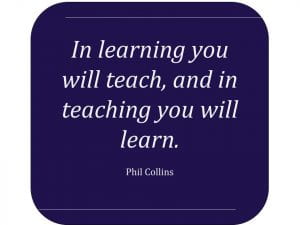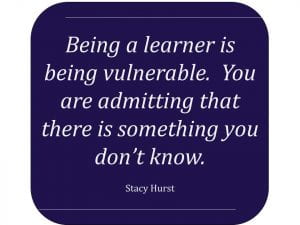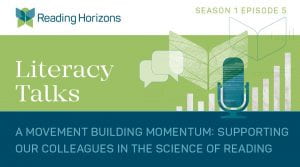At the beginning of my Thursday morning run, I was greeted by a fellow early-bird-exerciser. Jackie paused her walk briefly to say, “Hey, I read that article in the paper about you being the ‘Reading Queen.’ What a great article. You know, when I was in 3rd grade, I remember very distinctly a nun, Sister Pat, getting so angry about teachers moving away from phonics. She was MAD! She said if we go to this whole word reading, we will ruin future generations of readers.” As Jackie and I parted ways, she said, “By the way, I have dyslexia. Well, a little dyslexia… if there is such a thing. I can read and write, but not very well. Don’t look for me to write a book!”
Jackie didn’t know it, but she gave me quite a boost of energy for that morning run! I didn’t like hearing that Jackie has dyslexia, or that Sister Pat predicted what ultimately came true to be true… a movement known as Whole Language, which morphed into Balanced Literacy. I was energized because Jackie recognized some of the key points that were summarized in the article: As we embrace the Science of Reading, we know that it stresses 1) the importance of systematic and explicit phonics instruction 2) the importance of access to rich literature for ALL students and 3) the vital role that content knowledge and vocabulary play in effective reading instruction.
She also reminded me of the tremendous amount of learning I have engaged in around this topic in recent years. She reminded me that we are all learners. Jackie took the time to read that article, and to learn from it.
This post is a call to all educators…all humans… to remind ourselves that above all else, we are learners. We are learners first. The minute we think we “have arrived” is the minute we need to reconsider our occupation.

My new favorite podcast, in tandem with Jackie’s story, is serving as the impetus for this post. Literacy Talks from Reading Horizons is a phenomenal podcast, with just five episodes at the time of this writing that are absolutely packed with knowledge about effective reading instruction. The “trio of literacy champions” featured in the podcast talk in terms that are easy to understand. They are my new best friends, even if they don’t have a clue who I am! 🙂
The latest episode, A Movement Building Momentum: Supporting Our Colleagues in the Science of Reading, speaks volumes to me! Of the million-and-one takeaways that I have from the episode (and the preceding four episodes), the biggest is this: Teachers are learners first.
Series host, Stacy Hurst, assistant professor at Southern Utah University and Chief Academic Officer at Reading Horizons, reminds us: “…as we learn together… we’ve somehow lost that definition that we are learners first – we’re learners first and always, right, because we want to model learning for our students.” BINGO.
Stacy and fellow podcasters, Donell Pons and Lindsday Kemeny remind us that the best way we can support our colleagues in the Science of Reading movement is perhaps with this notion about being learners first. And for those of us who are a bit farther along on our journey in understanding the vast body of knowledge that is the Science of Reading, we can benefit from remembering that for a myriad of reasons, everyone is at a different place in their journey. Donell Pons says it best when she says, “…not everyone will have the same hunger… Everyone’s journey will be different and that’s OK.”
Some people have arrived at the Science of Reading because they had to: they had a family member or student who was not learning to read, who had dyslexia, who was not benefitting from a balanced literacy approach. Some people have arrived because it is being forced through legislation or through school board policy. Some (like me) have arrived because a caring colleague dropped the seminal article by Emily Hanford, Hard Words: Why Aren’t Kids Being Taught to Read, on my desk one day, and it rocked my world. It forever changed my learning trajectory around teaching reading. I will forever be grateful, Erin Slifer!
(I) Have Been Teaching for (30) Years…
I find myself bristling when I hear teachers say some version of, “I have been teaching for — number of years. I know what I’m doing.” or “Yeah, we’ve seen/heard this before. It’s just another pendulum swing.” What I hear when teachers say this (and it may very well not be their intention) is: “I have arrived. I know everything there is to know about teaching. There is very little/nothing left for me to learn.”
When teachers say things like this, it feels as if they have lost sight of the fact that We. Are. Learners. First. They have lost sight of how critically important it is to model learning for our students. Stacy Hurst wraps it up much more succinctly than I can when she says, “If we could just change our culture as teachers to that learner perspective. Staying curious, following our curiosity, leaning into it and modeling – yeah, being a learner is being vulnerable. You are admitting that there is something you don’t know.” And later, “We can reduce it to having a learner mindset.”

Leggo’ Our Ego’s
Lindsay nails the problem on the head when she says, “Adult ego is our biggest barrier.” Oh my goodness. Isn’t this the truth about EVERYTHING??? We can look at any conflict, big or small, and upon placing that conflict under the microscope, we would see ego up against ego.
At about 19 minutes into the podcast, Lindsay says “I think the most important thing a teacher can do… we need to encourage other teachers just to learn, build your knowledge… It’s just on us to build our knowledge base on this and on the research, scientifically based research on reading so that we can ascertain whether something is aligned…[with the Science of Reading.]”
My Challenge
When I think about the title of my blog, “Learning Through Blogging,” I need to remember the very message of this particular post: I am a learner first. In writing about this topic last July in my post titled, Forever a Learner, I pinpointed three takeaways about learning, in general:
- Monitor assumptions
- Remain open to learning
- Take time to process your learning
I would now add to that something along the lines of: Support my colleagues by encouraging and promoting Science of Reading practices. This is a tricky wicket: trying to recognize where others are at on their learning journey, suspending judgment, meeting them where they are at, and encourage & promote without being too pushy. AND recognize that our students cannot wait for our learning to catch up. Geesh. This is tough stuff! So we must remember what Donell Pons says, “…you just can’t quit. You just keep going.”

I appreciate your reminder that we are learners first. Curiosity. Observe. Listen. Reflection.
Model learning for our students!